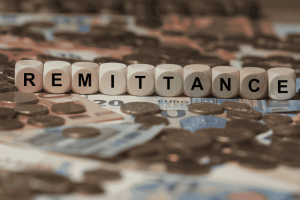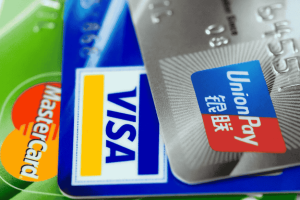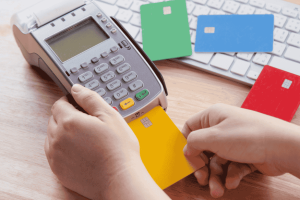Managing your money across borders can feel like navigating a maze. Whether you’re working abroad, supporting family in another country, running an international business, or simply traveling often, understanding cross-border banking is essential for your financial well-being. If you’re looking for ways to make your money work smarter on a global scale, you’re in the right place.
In this article, you’ll discover practical tips, common pitfalls, and the best strategies for handling your finances internationally. Let’s break down the complexities of cross-border banking so you can manage your money with confidence—no matter where life takes you.
Why Cross-Border Banking Matters

The world is more connected than ever. People are moving, working, and investing beyond their home countries. But with opportunity comes complexity. Cross-border banking is about more than just opening a foreign account—it’s about understanding regulations, fees, exchange rates, and how to keep your money safe and accessible.
Key reasons you might need cross-border banking:
- Working or studying abroad
- Sending money to family in another country
- Investing internationally
- Managing business operations across borders
- Traveling frequently
The Basics: What Is Cross-Border Banking?
Cross-border banking refers to managing your money across more than one country. This includes not only holding accounts in different currencies, but also navigating financial systems, regulations, and services beyond your home country.
You might engage in cross-border banking if you:
- Hold bank accounts in two or more countries
- Receive income in a foreign currency (e.g. remote or freelance work)
- Send money internationally to family, friends, or suppliers
- Use global payment platforms like Wise, PayPal, or Revolut
- Live or travel abroad and need ongoing access to funds
Why Is It Important?
Each country operates under its own financial and legal framework. When you cross borders with your finances, things get more complicated—but also more rewarding, if managed well.
Here’s why understanding cross-border banking matters:
- Different rules and regulations: Tax laws, reporting requirements, and banking restrictions can vary widely. What’s legal or easy in one country might be restricted in another.
- Currency controls: Some countries limit the flow of money in and out. Knowing these rules helps avoid delays or rejected transactions.
- Exchange rates and fees: Without proper planning, currency conversion and international transfers can erode your funds quickly.
- Access to services: Not all banks operate internationally. Choosing a cross-border-friendly provider ensures you can access your money wherever you are.
- Legal compliance: In some countries, failing to report foreign accounts or income can lead to penalties or legal action.
Understanding these basics helps you avoid common pitfalls—like unnecessary fees or blocked transfers—and gives you more control over your global financial life.
Opening and Managing International Bank Accounts
Opening a bank account abroad can feel more complex than opening one at home. It’s not just about walking into a branch and filling out a form. There are several important factors to consider before you start the process.
First, think about the documentation you’ll need. Most banks will ask for proof of identity and address, but some might also require a local tax identification number or other paperwork specific to that country. Next, be aware of residency requirements. Not all banks allow non-residents to open accounts, and those that do often impose stricter rules or higher fees. This means your eligibility might depend heavily on where you live or your citizenship status.
Then, consider the minimum deposit requirements. Many international accounts require a higher initial balance compared to domestic accounts, so make sure you’re comfortable with the amount needed to open and maintain the account. Don’t forget to carefully review account fees. Monthly maintenance charges, transaction fees, and currency conversion costs can add up quickly if you’re not careful.
Pro Tip: Before committing, take the time to compare different banks and account types. Some international banks and digital-first institutions specialize in cross-border banking and offer more flexible terms, better digital access, and lower fees—making them a smart choice for global citizens.
Multi-Currency Accounts: Simplify and Optimize Your Finances
A multi-currency account enables you to hold, send, and receive funds in multiple currencies within a single account, eliminating the need to open separate accounts for each currency. This type of account is especially beneficial if you:
- Receive payments from clients, employers, or marketplaces in different currencies
- Travel internationally for business or leisure frequently
- Make regular cross-border payments or purchases
Key Benefits:
- Reduced Currency Conversion Costs: By holding funds in the currency you receive, you avoid frequent conversion fees and unfavorable exchange rates.
- Improved Budget Management: Easily track and manage your income and expenses in their original currencies, giving you better financial clarity and control.
- Faster and Cheaper Transfers: Many multi-currency accounts offer lower fees and quicker international transfers compared to traditional banks.
- Convenience and Flexibility: Manage multiple currencies through one platform, often accessible via intuitive mobile and web apps.
- Better Exchange Rate Control: Some accounts allow you to lock in favorable exchange rates or convert funds manually when rates are most advantageous.
Who Should Consider a Multi-Currency Account?
- Freelancers and Businesses: Receiving payments from global clients in different currencies without losing money on conversions.
- Expats and Remote Workers: Managing salary, bills, and savings across countries with different currencies.
- Frequent Travelers: Avoiding costly currency exchange at airports or local vendors.
- Online Shoppers and Investors: Making purchases or investments in foreign currencies without unnecessary fees.
Many digital banks and fintech platforms—such as Wise (formerly TransferWise), Revolut, N26, and Payoneer—offer multi-currency accounts equipped with easy-to-use apps and competitive fees. These services are continuously evolving to provide enhanced features like real-time exchange rate alerts, multi-currency debit cards, and seamless integration with payment platforms.
Sending and Receiving Money Internationally
Understanding Transfer Methods
When it comes to moving money across borders, there are several options available—each with its own advantages and drawbacks:
- Bank Wire Transfers: A traditional and reliable method, but often costly and slower compared to newer solutions.
- Online Money Transfer Services: Fast, convenient, and typically more affordable. Popular platforms include Wise, Revolut, and PayPal.
- Remittance Services: Tailored for sending money to family and friends abroad, frequently offering cash pickup options for recipients.
- Cryptocurrency Transfers: An emerging alternative that offers speed and decentralization but involves price volatility and regulatory uncertainties.
Key Factors to Consider:
- Transfer Speed: How quickly the money reaches the recipient.
- Total Cost: Including transfer fees, hidden charges, and exchange rate margins.
- Security and Reliability: Ensuring your funds and personal data are protected throughout the process.
- Customer Support: Accessible and helpful service can be crucial if any issues arise.
Exchange Rates: The Hidden Cost
When sending money internationally, the exchange rate can have a big impact on how much your recipient gets. Banks and services often add a markup to the “real” exchange rate.
How to save:
- Compare rates from different providers before sending
- Use services that offer mid-market rates with transparent fees
- Consider timing your transfers if currency rates are volatile
Managing Cross-Border Taxes and Regulations

Tax Implications of Holding Money and Earning Income Abroad
Managing money or earning income in a foreign country can have important tax consequences. Key considerations include:
- Reporting Requirements: You may be obligated to declare foreign bank accounts or income sources to your home country’s tax authority to comply with legal regulations.
- Taxation on Earnings: Interest, dividends, and capital gains earned abroad may be subject to taxation both locally and in your home country.
- Double Taxation Agreements (DTAs): These treaties between countries aim to prevent you from being taxed twice on the same income, but it’s crucial to understand how they apply to your situation.
Tip: Maintain thorough records of all your international financial transactions, including bank statements, income reports, and tax filings. Consulting a tax professional experienced in cross-border taxation is highly recommended to ensure compliance and optimize your tax position.
Regulatory Compliance
Banks and governments enforce strict Anti-Money Laundering (AML) and Know Your Customer (KYC) regulations to prevent fraud and illegal activities. When dealing with international money transfers, be prepared to:
- Provide Detailed Documentation: Especially for large transactions, you may need to submit proof of identity, source of funds, and transaction purpose.
- Explain the Source of Funds: Clear explanations and supporting documents help ensure your transfers comply with legal requirements.
- Regularly Update Your Information: Keep your personal and financial details current with your bank or service provider to avoid interruptions.
Failing to comply with these regulations can lead to frozen accounts, delayed transfers, or even legal consequences.
Security: Protecting Your Money Across Borders
When sending or receiving money internationally, it’s important to be aware of common risks. Fraud and scams remain a significant threat, as criminals often target cross-border transactions. Additionally, regulatory checks such as Anti-Money Laundering (AML) and Know Your Customer (KYC) procedures can sometimes lead to temporary account freezes, delaying access to your funds. Another factor to consider is currency fluctuations—sudden changes in exchange rates can affect the value of your money during transfers or while holding foreign currencies.
To stay safe, always use reputable banks and trusted money transfer services known for strong security measures. Enabling two-factor authentication (2FA) on your financial accounts adds an extra layer of protection. It’s also essential to regularly monitor your accounts for any unusual or unauthorized activity. Lastly, be cautious about sharing sensitive information and avoid doing so over unsecured or public networks.
Digital Banking and Fintech: The New Frontier
The rise of digital banks and fintech platforms has made cross-border banking easier than evThe rise of digital banks and fintech platforms has revolutionized cross-border banking, making it more accessible and convenient than ever before. Many of these providers offer instant international transfers, multi-currency wallets, and low or even no fees, all accessible through intuitive mobile apps.
Why consider digital banking? These platforms deliver faster service at a lower cost, with 24/7 access from anywhere in the world. They also come equipped with innovative features such as budgeting tools and real-time exchange rate updates to help you manage your finances more effectively.
However, it’s important to always verify that your chosen provider is properly regulated and that your funds are protected to ensure security and peace of mind.
Practical Tips for Managing Your Finances Internationally

Effectively managing your finances across borders requires careful planning and attention to detail. Here are some key strategies to keep in mind:
- Maintain separate accounts for different currencies to avoid unnecessary currency conversions and save on fees.
- Automate regular transfers such as rent or subscriptions to save time and prevent missed payments.
- Track all fees and charges carefully, as small costs like transfer fees or exchange rate margins can quickly add up.
- Stay updated on regulations in both your home and host countries to ensure compliance and avoid penalties.
- Use budgeting apps that support multiple currencies to get a clear, consolidated view of your finances and better control over your spending.
By focusing on these points, you’ll be better equipped to manage international finances smoothly and efficiently.
Common Pitfalls to Avoid
When managing international finances, several mistakes can lead to unexpected costs or complications. Ignoring exchange rates and hidden fees can significantly reduce the value of your transfers. It’s also crucial to report any foreign income or accounts to your home country’s tax authorities to stay compliant with regulations.
Using unregulated or unfamiliar transfer services can expose you to security risks or delays. Additionally, not keeping backup funds accessible can leave you vulnerable if your account experiences freezes or other issues. Lastly, overlooking local banking holidays and cut-off times may cause delays in processing your transactions.
Your Cross-Border Banking Checklist
| Task | Why It Matters |
| Research banks and account options | Find the best fit for your needs |
| Gather all required documents | Speed up the account opening process |
| Compare transfer services and fees | Save money on international transactions |
| Understand tax and reporting requirements | Stay compliant and avoid penalties |
| Set up security features | Protect your accounts from fraud |
Conclusion: Take Control of Your International Finances
Managing finances across borders doesn’t have to be overwhelming. With the right knowledge and tools, you can make your money work for you—no matter where you are in the world. Remember to research your options, stay informed about regulations, and use technology to your advantage.
Ready to take your cross-border banking to the next level? Start by reviewing your current setup and identifying areas for improvement. Have tips or experiences to share?
Don’t keep this knowledge to yourself—share this article with friends or family who could benefit from smarter cross-border banking!









